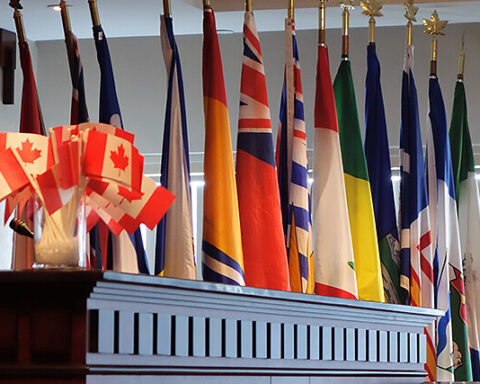Early last week, the Government of Canada enacted the remaining amendments to the Citizenship Act resulting from the Strengthening Canadian Citizenship Act (‘C-24’), first introduced in 2014.
While mainstream media did an effective job of disseminating certain C-24 changes – particularly those around the ‘second-class citizen’ provisions (see Storify here) – C-24 needs to be viewed in its totality, as it has practical implications for all Canadian citizenship applicants.
The Good
Physical Presence
The Change: C-24’s new residency obligations require that an applicant is physically present in Canada for four years (1,460 days) out of the six years immediately before the date of a citizenship application.
By clarifying this obligation, C-24 resolved conflicting rulings from the Federal Court of Canada that suggested significant ties and obligations to Canada could replace the physical residence requirement. Given good laws must be consistently applied, this change is surely a positive step.
Misrepresentation
The Change: Prior to C-24, the only process for punishing misrepresentation in citizenship was through investigation by the Royal Canadian Mounted Police (RCMP). Furthermore, there were no requirements for regulation of consultants for citizenship and few penalties to punish those who counselled misrepresentation.
It is also in the benefit of all applicants if issues around misrepresentation and fraud are dealt with at the front-end and prior to ‘bad apple applications’ delaying the applications of the overwhelming majority of honest applicants.
Implementation of this provision strengthens system integrity. It is also in the benefit of all applicants if issues around misrepresentation and fraud are dealt with at the front-end and prior to ‘bad apple applications’ delaying the applications of the overwhelming majority of honest applicants.
The Bad
Residency
The Change: Under C-24, applicants must be physically present for 183 days or more in the four qualifying years. Furthermore, a half-day credit will no longer be awarded for days spent in Canada prior to obtaining permanent residence. Importantly, there is also a new ‘intent to reside’ provision that requires an applicant to ‘swear’ his or her intention is to reside in Canada.
Several applicants, particularly those who are permanent residents by way of economic immigration, will be challenged to meet these new obligations or demonstrate a definite intention to reside during the period of application processing.
By not providing any exceptions (i.e. working for a Canadian entity outside of Canada) nor rewarding those who have made long-term commitments to Canada prior to obtaining permanent residency, these provisions unduly create a barrier to applying for Canadian citizenship.
Filing Taxes
The Change: Tying into the residency obligation, C-24 also introduces a new requirement to file tax returns in four out of the six qualifying years. There are concurrent legislative changes to implement information sharing of Social Insurance Numbers between the Canada Revenue Agency (CRA) and Citizenship and Immigration Canada (CIC).
It is much harder to correct an error in a citizenship application, particularly where misrepresentation provisions serve as a major deterrent to self-declaring mistakes.
While I appreciate and understand that the CRA has had difficulty collecting appropriate taxes from immigrant taxpayers, I believe these issues are separate from the immigration process. It is rash to try and mix the two legal regimes.
The CRA provides an opportunity for taxpayers to correct their filings in cases of error, with limited consequence. It is much harder to correct an error in a citizenship application, particularly where misrepresentation provisions serve as a major deterrent to self-declaring mistakes.
The Ugly
Decision-Making Power
The Change: Whereas previously, applicants were referred to citizenship judges when disputes arose on issues such as residency or the knowledge test, C-24 provides CIC’s own citizenship officers the ability to make final decisions on citizenship applications, with few exceptions.
Restricting the right of applicants to judicial review or reapplication is highly detrimental to the value of Canadian citizenship. The process of judicial review is not an appeal. Applicants are unable to provide new evidence or clarify evidence submitted in support of a citizenship application.
A proper appeals process, presided by an independent decision-maker, not a citizenship officer employed by CIC, must be created.
Revoking Citizenship
The Change: The most publicized change that has emerged from C-24 is the ‘second-class citizenship’ provision (see Storify here), which makes it possible to revoke the citizenship of certain individuals convicted of terrorism and other national security offences. C-24 does not specifically use the language of ‘dual citizen’ and rather relies on the use of the word ‘stateless.’ Several individuals who may have access to a second country may possibly fall under the rather loosely worded provision and be subject to citizenship revocation.
I believe this provision undermines the very foundation Charter right of security of a person, which citizenship should provide regardless of whether an individual has access to a second citizenship.
Courts, and ultimately the Supreme Court of Canada, will have a say on this provision vis-à-vis the Charter of Rights and Freedoms. Certainly, this change is the most challenging part of C-24 for the federal government. Personally, I believe this provision undermines the very foundation Charter right of security of a person, which citizenship should provide regardless of whether an individual has access to a second citizenship.
The Contradictory: Closing the Pathway to Citizenship in Canada
From a macro-level, the greatest challenge with C-24 is not the provisions themselves, but how the revised Citizenship Act juxtaposes with Canada’s current immigration policy.
We are risking, with C-24, creating a very undesirable, Kantian concept of citizenship. It is not possible to both promote Canada internationally as an accessible, permanent home, and then attempt to foreclose that opportunity once the individual and his/her family obtains permanent residency with strict citizenship laws.
Ultimately an applicant for Canadian citizenship needs to know that if he or she has met the clearly set-out requirements, he or she should be able to obtain the legal right, and yes, also the corresponding privilege and responsibility of being a Canadian.
Canada should not be, and cannot afford to be, a country where becoming a full-bodied citizen requires certain natural prerequisites (for example, not being a dual citizen), or that an individual have some property and be one’s own master (for example, the ability to control residency to the number of days per year).
Ultimately an applicant for Canadian citizenship needs to know that if he or she has met the clearly set-out requirements, he or she should be able to obtain the legal right, and yes, also the corresponding privilege and responsibility of being a Canadian.
If not, especially in today’s globalized world, individuals and families who could have benefited the Canadian social and economic fabric will simply pack their bags and go to the country that can offer them that security of citizenship and permanent peace of mind.
Will Tao is an Associate and Canadian Immigration Lawyer at Larlee Rosenberg, Barristers and Solicitors in Vancouver, BC. Tao is involved in both the application processing and litigation sides of Canadian immigration law and focuses on resolving complex immigration matters involving economic and family class applicants. Tao maintains a collaborative blog on immigration called the Vancouver Immigration Blog.
Note that the article represented only the views of the author and does not reflect the view of Larlee Rosenberg. The content contained in this article is for informational purposes only and should not be relied upon or construed as legal advice. The author recommends that individuals with Canadian immigration law issues seek competent, local counsel prior to submitting their immigration applications.




